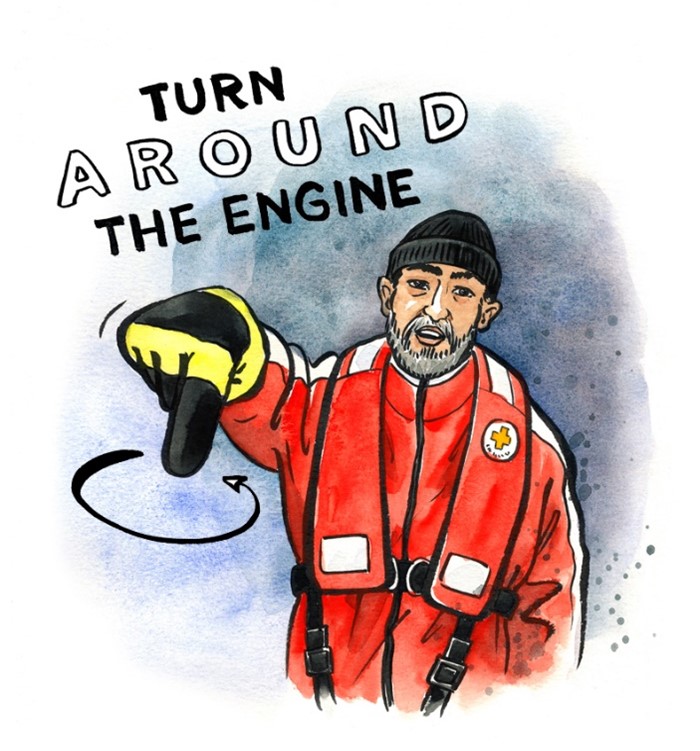
Our recent study, published in the Journal of Management Studies, explores how people make collective sense in order to act in a coordinated manner in extreme contexts. Sensemaking in such contexts is fragile, as individuals likely experience distracting emotions and may differ in their understanding of the situation. We studied maritime search and rescue operations in the Aegean Sea to develop a collective sensemaking model that details the auxiliary process steps and multimodal communication – verbal, para-verbal, and non-verbal cues – actors use to alternately frame emotional states and convey task-related information. This model offers practical approaches for improving cooperation in situations that are simultaneously evolving, uncertain, and risky.
What do people need in order to act in a coordinated manner in an extreme context?
In extreme contexts, such as a rescue operation in the open sea, individuals interpret situations based on their knowledge, experience and affective state, often in communication with others. This process, known as “sensemaking,” is vital for survival in extreme situations, because other mechanisms for coordination, such as professional roles, hierarchical structures, and standard operating procedures, may fall short. However, sensemaking in extreme contexts is known to be fragile. The evolving, uncertain, and risky nature of extreme contexts often forces together cognitively disparate actors – that is, actors with differing or conflicting cognitive elements. Extreme contexts also often trigger distracting emotions – that is, affective experiences that challenge the ability of individuals to focus on goal-relevant information. Cognitive disparities and emotive distractions disrupt the perception and processing of cues and thus complicate joint (inter-)action, thereby impeding the formation of a shared and accurate cognitive representation of the situation. Without such a representation, collective sensemaking is bound to fail, potentially leading to catastrophic outcomes.
What is the study about?
While prior research has established that cognitive disparities and emotive distractions disrupt collective sensemaking, we lack theory on how actors overcome these common challenges in extreme contexts. To address this shortcoming, we conducted a process study. Specifically, we collected unique multi-perspective video and archival data during a maritime search and rescue mission in the Aegean Sea where actors (i.e., rescue crew members and refugees) faced cognitive disparities (e.g., different levels of maritime expertise) and distracting emotions (e.g., fear, anxiety, and tension) yet needed to coordinate their actions to ensure a safe evacuation.
The result of the analysis: an extended collective sensemaking model
We found that actors use auxiliary process steps and multimodal communication in the extreme-contexts collective sensemaking. While the original sensemaking model focuses exclusively on cognitive processing, the extended model we develop integrates emotion management and task guidance. This integration is crucial because emotions significantly influence how individuals perceive and respond to extreme situations, while partially lacking required task knowledge. Our extended sensemaking model acknowledges that emotions, such as fear, anxiety, and stress, can impact cognitive processing and decision-making. By incorporating emotions into the model, the researchers provide a more comprehensive understanding of how people make sense of and respond to extreme situations. This extended model offers practical approaches for individuals who regularly work with others in extreme environments, such as emergency services, police, or disaster control.
Conclusion
Taken together, our study provides valuable insights into the factors that enable coordinated action in extreme contexts. By extending the sensemaking model to include emotions, we offer a more comprehensive understanding of how actors navigate extreme environments. The practical approaches outlined in the study can help improve cooperation and coordination in extreme contexts, ultimately reducing the risk of mistakes and catastrophic consequences.

0 Comments